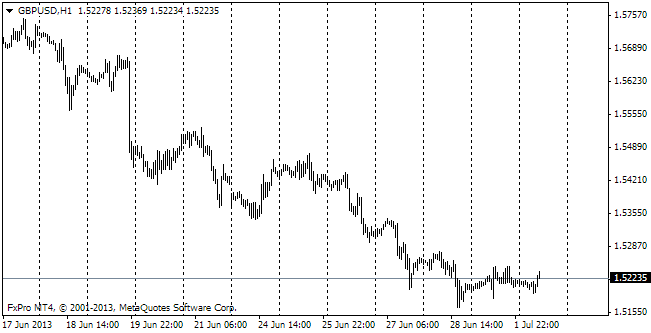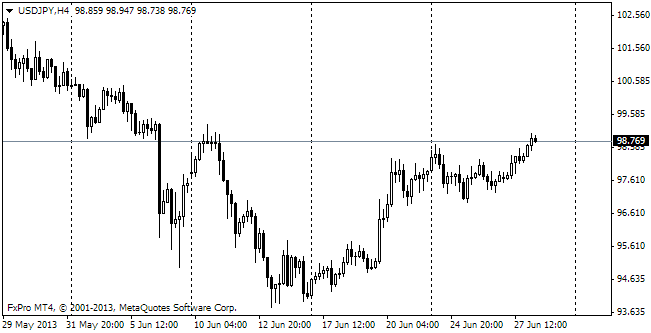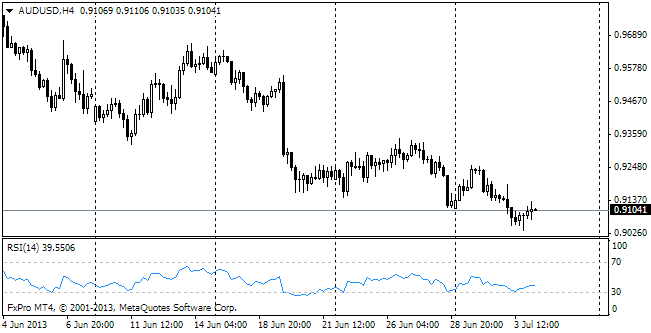EUR/usd
There was little economic news on Monday, which explains sluggishness of trading that day. eurusd was fluctuating in the incredibly narrow range, mainly within the 1.3870 – 85 channel. Probably, only the Sentix Investor Confidence is worth considering. In May the indicator made 12.8 against the expected growth from 14.1 to 14.2. Producer prices in the region expectedly fell by 0.2% m/m and the annual decline proved to be a bit better than forecasted, totaling 1.6% instead of the preceding and expected 1.7%. The fact that prices remain negative after 12 months and fall from month to month since the beginning of the year keeps the concerns about disinflation risks in the region still strong. This price dynamics would be enough for ease the policy in the period of recession or absence of growth, however now the EU economy is extending quite quickly. Prime Minister of France has been criticized by the Bundesbank for the call to weaken the single currency. It is a signal that Germans remain fierce hawks, thus curbing the policy easing. In such a situation it again seems that rather than Greece it is Germany which shouldn't be in the eurozone. Germany stands out too much against the others and its economy requires a tougher monetary policy to prevent bubbles. Of course, the fact, that Germany now has the lowest unemployment after the reunification and the record surplus of the trade balance, is a result of great work, done in the preceding dozen of years. However, the thing is that Germany chose this way itself, while Ireland, Greece, Spain and Portugal went it as a result of the measures to bailout the economy. So, you shouldn't think that the suffering countries will further stick to this scale of austerity once they stop getting support from the troika. For example, Portugal is already about to exit the EU bailout since it has enough financial resources. And Greece claims that it won't need additional support from the outside, as was believed earlier this year. Besides, it is obvious that the markets are favourably disposed to Europe.
GBP/USD
There was very little news on Britain, so traders preferred sluggish profit-taking. The pair was gradually sliding down during the day. It twice got support on the dips down to 1.6850, but remained in the short-term downtrend and fell from 1.6875 to 1.6860 by the end of the day. We could speak about formation of the downward trend in the course of three trading days, but the mini-resistance was broken this morning by taking 1.6867. We'll get confirmation and a short-term bullish signal at 1.6880. Probably, bulls will make an attempt to attack 1.6900 and win the favour of short-term speculators, targeting 1.7000.

USD/JPY
After the unlucky beginning of trading on Monday, when the pair dropped to 101.85, during the day it was in moderate demand on the positive performance of stock exchanges. But even then the pair failed to tear off the rate of 102 yens per dollar.

AUD/USD
The decision to keep the interest rate unchanged was quite expected and the minimum changes in the comments were not the reason for the aussie's movement today. The pair is under pressure because of the trading statistics. The Australian trade surplus proved to be much worse than expected, making 731bln in March. The decrease against the February surplus of 1.26bln was mainly caused by reduction of exports (-547bln), where the main blow fell on the extractive industries. The need to support the economy in the period of decline in the production will still be a factor, preventing the RBA from the rate increase.
